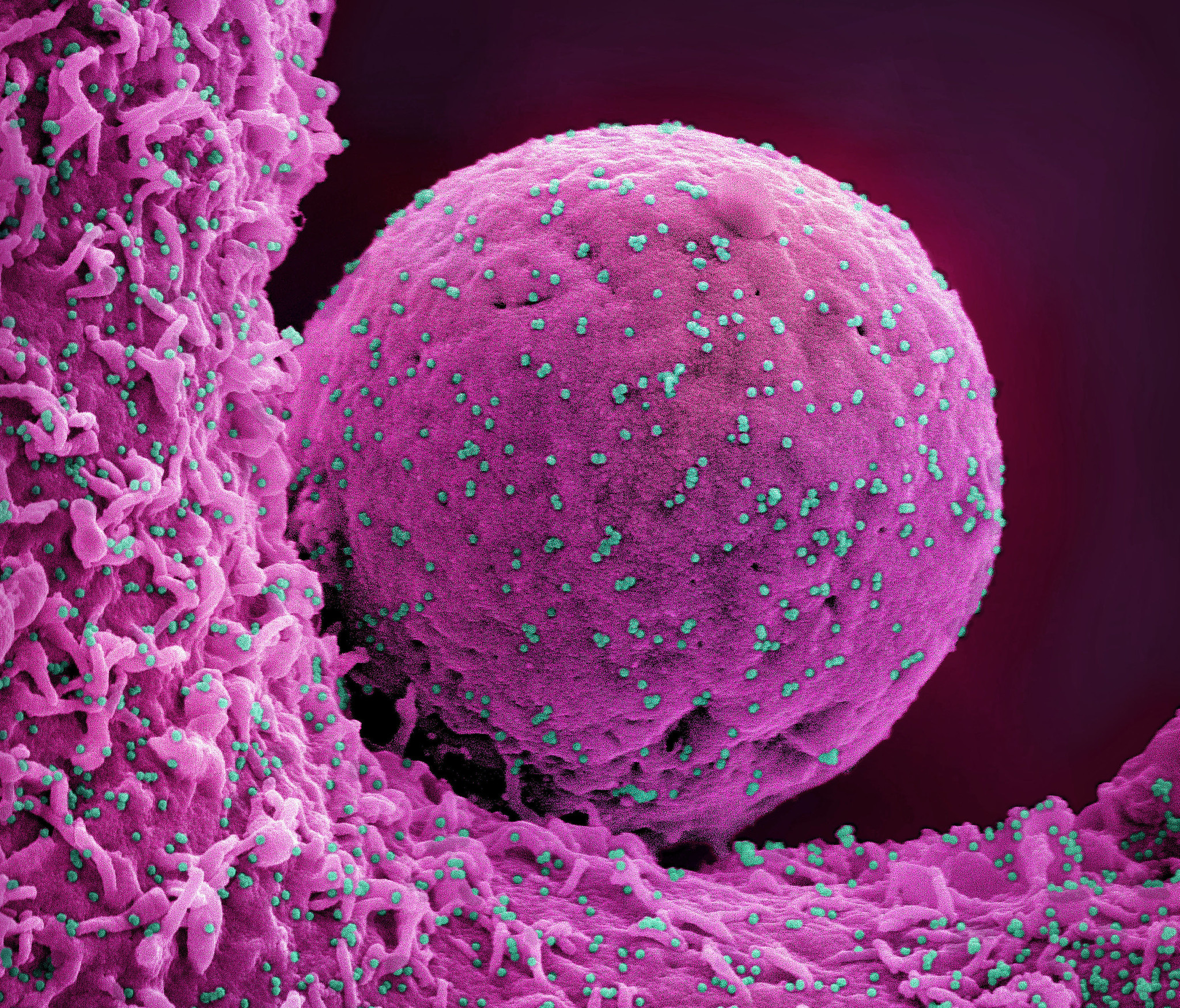Infection
Clinical trial to test immune modulation strategy for hospitalized
News Release
Friday, September 22, 2023
Part of NIH’s STRIVE consortium, the therapeutic may prevent overactive immune systems from causing severe symptoms.
A clinical trial has launched to test whether early intensive immune modulation for hospitalized COVID-19 patients with relatively mild illness is beneficial. The placebo-controlled study, part of the global clinical trials consortium known as Strategies and Treatments for Respiratory Infections and Viral Emergencies (STRIVE), will enroll approximately 1,500 people at research sites around the world. It is supported by the National Institutes of Health’s National Institute of Allergy and Infectious Diseases (NIAID) in partnership with NIH’s National Center for Advancing Translational Sciences (NCATS).
Immune modulators—treatments for modifying the immune system to better respond to disease or illness—are lifesaving for certain hospitalized COVID-19 patients. However, the optimal timing for administering the medicines to achieve the best outcomes has not been defined.
“The evidence is clear that immune modulation can be beneficial for severely ill COVID-19 patients,” said NIAID Acting Director Hugh Auchincloss, M.D. “Patients with milder cases of COVID-19 are often administered one immune modulator, and a second treatment is added only if the patient becomes severely ill. It is possible that adding a second therapeutic earlier in the patient’s treatment could prevent progression to severe illness and improve recovery. This clinical study aims to answer that question.”
The drug being used to test the strategy of early intensification of immune modulation, abatacept (or Orencia), is manufactured by Bristol Myers Squibb, Princeton, New Jersey. It was first approved by the U.S. Food and Drug Administration in 2005 as a treatment for rheumatoid arthritis in adults and subsequently has been approved to treat other forms of arthritis in adults and children. Researchers think it may also be useful as an immune modulator for COVID-19 by tamping down over-active immune responses.
Abatacept works by binding to and blocking molecules that normally activate T cells, a key part of the immune system. Other immune cells may also be affected by the drug. For patients taking abatacept, the immune system may be less likely to “overreact” when fighting an infection such as COVID-19. Symptoms from an unregulated immune response to COVID-19 can include severe respiratory distress, which can be fatal.
Participants may enroll in the current trial if they are receiving supplemental low-flow oxygen upon being hospitalized for COVID-19 infection at one of the participating study sites. In addition to the local standard of care (which varies by site but must include an immune modulator drug), participants will be randomized to immediately receive either a single intravenous infusion of abatacept with dosage dependent on the patient’s weight, or a placebo infusion. Neither the investigators nor the participants will know who is receiving early immunomodulator intensification and who is not.
Throughout the trial, patient safety will be monitored. Study investigators will closely track participants’ progress over the course of 60 days and will note when they are well enough to be discharged from the hospital and return home. These data, together with the patients’ status at 60 days, will help the study team to understand whether patients benefit from early immune modulator intensification.
Through the STRIVE platform, multiple therapeutic interventions for respiratory infections may be tested at once across a global network of study sites. More than 270 international sites plan to participate in this program, which enables continuous enrollment as COVID-19 surges in different parts of the world. The platform is designed to rapidly test new interventions to combat outbreaks of any respiratory disease, including pathogen X. STRIVE began its first trial, a test of the antiviral S-217622, in February 2023.
For more information about the trial, please visit ClinicalTrials.gov and search identifier NCT05822583.
STRIVE emerged from the NIH ACTIV public-private-partnership initiated in April 2020. The purpose of ACTIV was to develop a coordinated research strategy for prioritizing and speeding development of the most promising treatments and vaccines for COVID-19. STRIVE builds on the efforts of prior ACTIV master protocols that evaluated various therapeutics for people hospitalized with COVID-19. STRIVE is composed of global clinical trial experts from several medical specialties including infectious diseases, pulmonology, intensive care, and emergency medicine. Trial leadership includes Protocol co-chairs Christina Barkauskas, M.D., Duke University, Durham, N.C.; Jane O’Halloran, M.D., Ph.D., Washington University in St. Louis; Nnakelu Eriobu, M.D., Institute of Human Virology in Nigeria; and Tom Murray, Ph.D., from the University of Minnesota in Minneapolis.
NIAID conducts and supports research—at NIH, throughout the United States, and worldwide—to study the causes of infectious and immune-mediated diseases, and to develop better means of preventing, diagnosing and treating these illnesses. News releases, fact sheets and other NIAID-related materials are available on the NIAID website.
About the National Institutes of Health (NIH):
NIH, the nation’s medical research agency, includes 27 Institutes and Centers and is a component of the U.S. Department of Health and Human Services. NIH is the primary federal agency conducting and supporting basic, clinical, and translational medical research, and is investigating the causes, treatments, and cures for both common and rare diseases. For more information about NIH and its programs, visit www.nih.gov.
NIH…Turning Discovery Into Health®

